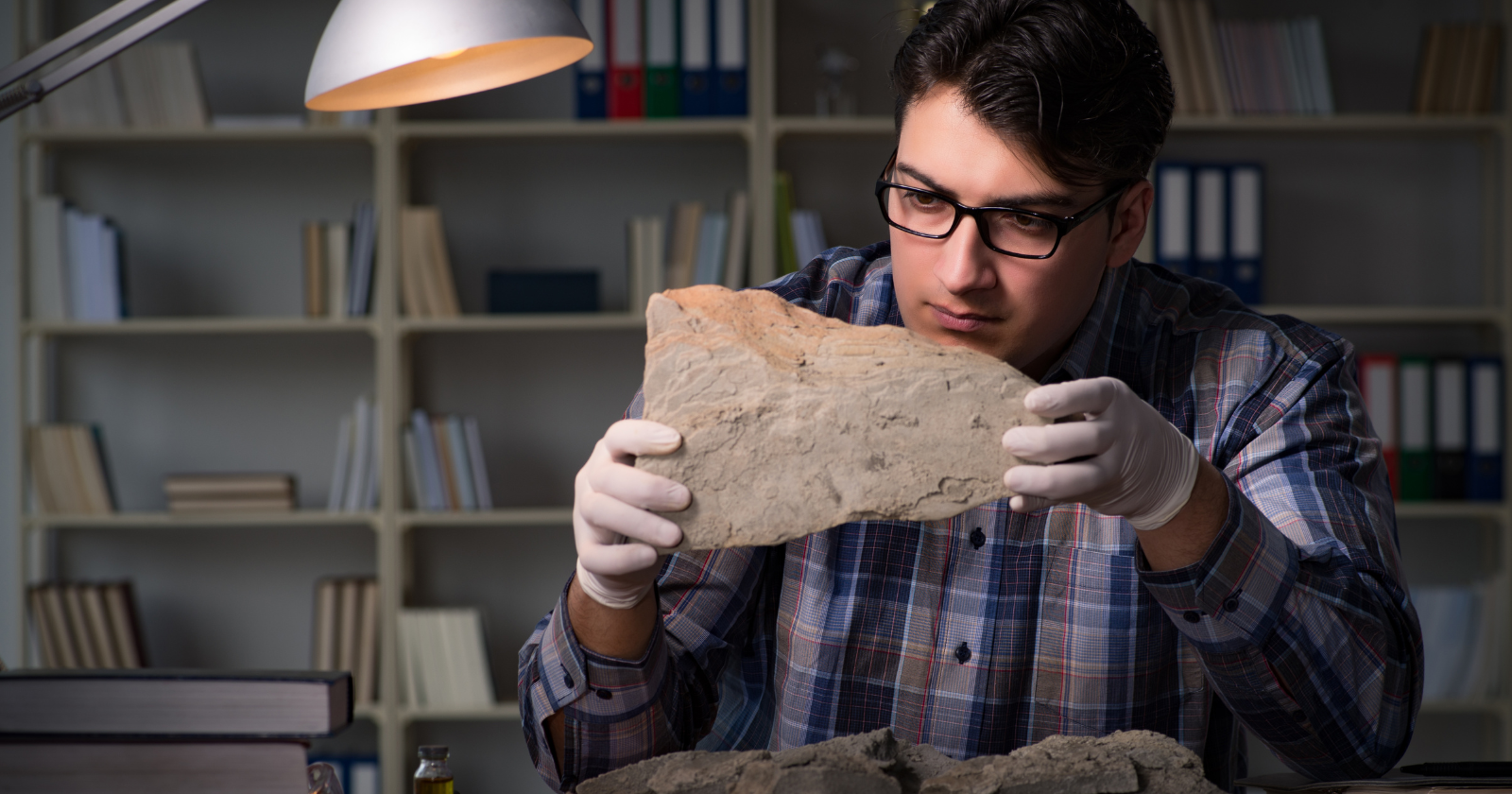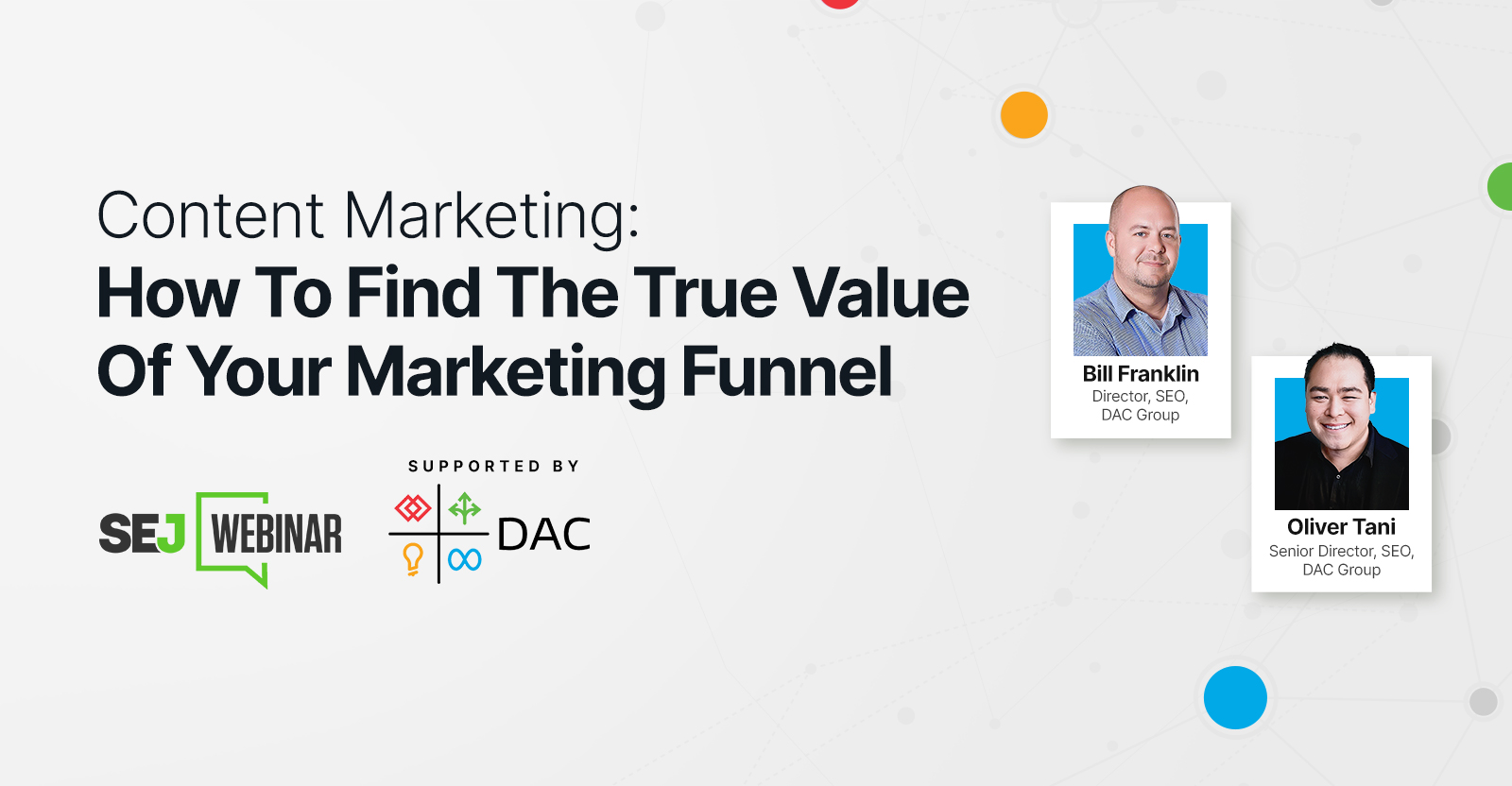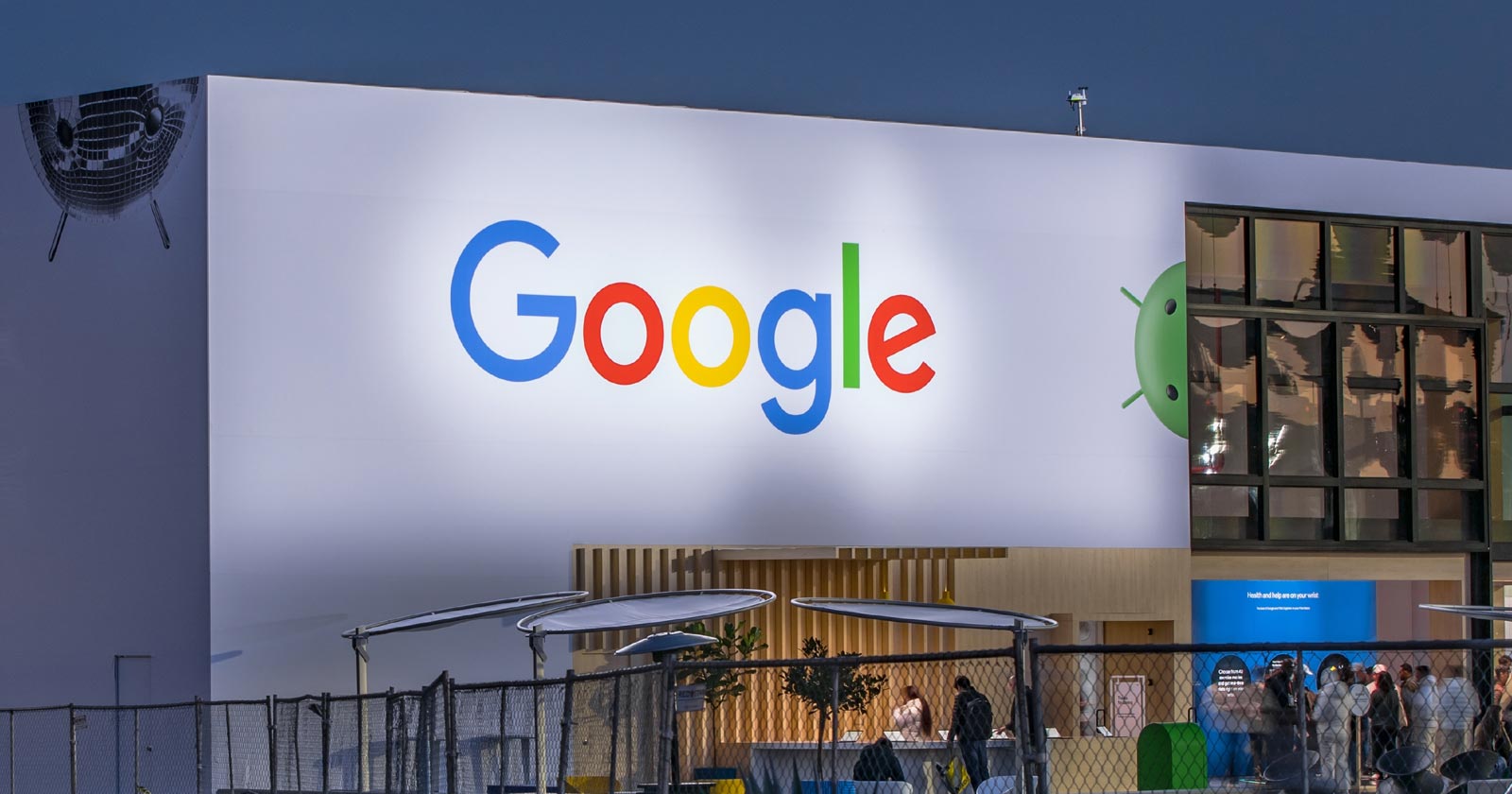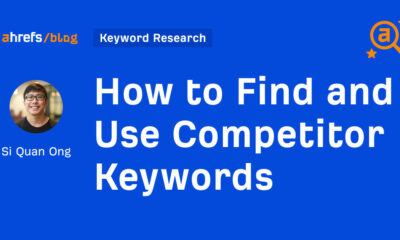SEO
How SEO Is Helping Archaeologists Debunk Conspiracy Theories

The opinions expressed within this story are solely the author’s and do not reflect the opinions and beliefs of Search Engine Journal or its affiliates.
You may have heard about “Ancient Apocalypse”, a series in which host Graham Hancock proposes controversial theories about the origins of ancient civilizations.
It spent a week trending in the global top 10 on Netflix, accruing around 24,620,000 watch hours between November 14th and November 20th, 2022.
Netflix lends authority to the show by categorizing it as a “docuseries,” and IMDB classifies it as a “documentary” and “history.”
But online, it’s been shrouded in controversy, and search algorithms might be rewarding good-faith critiques about the show from scientists and educators – as some working archeologists have deemed the show unsubstantiated pseudoscience at best, and dangerous misinformation at worst.
The Society For American Archaeology wrote a letter to Netflix asking it to reclassify and contextualize the show, citing the host’s “aggressive rhetoric,” the show’s “false claims,” and the associations that the theories presented have with “racist, white supremacist ideologies.”
But this is a story about the role SEO plays in the controversy – how scientists and science communicators present their critiques of the show, and how audiences find them.
Search algorithms get a lot of critiques for how they can be used to spread misinformation.
But in this case, I’ve seen support for educators and scientists who have committed to pushing back on popular pseudoscience.
Creators Rebutting “Ancient Apocalypse” Get A Boost From SEO
I first learned of the controversy from YouTube creator “History With Kayleigh,” who, while not an academic or accredited archaeologist, creates educational videos about ancient history and archaeological sites.
She interacted with Tweets from scientists who had responded and “decided to try and write a fair rebuttal to the show,” as she told me.
Kayleigh’s video about “Ancient Apocalypse” isn’t the best-performing video on her channel. Still, it was definitely performing above the average of her recent releases in a short amount of time, at 67,000 views on December 1st.

But then, I took another screenshot of the channel after the weekend, on December 5th.
Kayleigh released a second video, and the first “Ancient Apocalypse: Fact Or Fiction?” had already grown to 104,000 views.
 Screenshot from YouTube, December 2022
Screenshot from YouTube, December 2022
Kayleigh wasn’t the only creator to publish content about the Netflix series.
Dr. Bill Farley, an archaeologist and associate professor at Southern Connecticut State University who runs a small YouTube channel about archaeology in his free time, made one of the earliest YouTube videos critiquing Hancock and the show.
And while his reach is much smaller, his videos about “Ancient Apocalypse” exploded.
 Screenshot from YouTube, December 2022
Screenshot from YouTube, December 2022
 Screenshot from YouTube, December 2022
Screenshot from YouTube, December 2022
Dr. Farley shared screenshots of his YouTube analytics, demonstrating that his first video about Graham Hancock drew more traffic than usual from Google searches.
The below screenshots are from November 22nd, when the video was still around 5,000 views.
For that particular video, the “external” traffic source was around 28%, compared to his channel average of around 10%. A third of that external traffic was from Google.
 Screenshot of internal analytics of the “Archeology Tube” YouTube channel, November 2022
Screenshot of internal analytics of the “Archeology Tube” YouTube channel, November 2022
 Screenshot of internal analytics of the “Archeology Tube” YouTube channel, November 2022
Screenshot of internal analytics of the “Archeology Tube” YouTube channel, November 2022
The following screenshot is the overall channel data for comparison.
 Screenshot of internal analytics of the “Archeology Tube” YouTube channel, November 2022
Screenshot of internal analytics of the “Archeology Tube” YouTube channel, November 2022
He also shared the search terms the video was performing best for within YouTube search.
 Screenshot of internal analytics of the “Archeology Tube” YouTube channel, November 2022
Screenshot of internal analytics of the “Archeology Tube” YouTube channel, November 2022
I checked in again with his channel on December 5th.
 Screenshot from YouTube, December 2022
Screenshot from YouTube, December 2022
This first video still gains most of its traffic from search terms. External views on it were about 11% lower on December 5th than they were on November 22nd.
This makes sense with publications picking up the story and filling up search engine results pages (SERPs).
 Screenshot of internal analytics of the “Archeology Tube” YouTube channel, November 2022
Screenshot of internal analytics of the “Archeology Tube” YouTube channel, November 2022
The second video has wildly different statistics, being pushed mostly by YouTube’s browse features like recommended videos.
 Screenshot of internal analytics of the “Archeology Tube” YouTube channel, November 2022
Screenshot of internal analytics of the “Archeology Tube” YouTube channel, November 2022
This time, YouTube seems to have recognized the interest in a trending topic and pushed the video accordingly.
In the first video that he made about “Ancient Archaeology,” Dr. Farley addressed Hancock directly with a critique focusing on the relationship between the theories posed in the show, and white supremacy.
In the second video, Dr. Farley focused on debunking the specific falsehoods in the show.
He told me, “There is a MARKED difference in the reactions to the two videos. In video #1, I mention white supremacy and the history of Atlantean myths with racism. That video has … hundreds of disparaging comments [that] are misogynistic, racist, and homophobic.
The second video also has some comments like this, but many more positive comments or constructive criticisms. This video just spoke directly to some of the falsehoods in the show but does not directly address racism or white supremacy.”
Even with the negative reaction, the fact remains that people watched and engaged with the video, as this screenshot of the video’s engagement statistics shows.
 Screenshot of internal analytics of the “Archeology Tube” YouTube channel, November 2022
Screenshot of internal analytics of the “Archeology Tube” YouTube channel, November 2022
One could argue that this is a fluke – and that these seemingly successful performance metrics are simply about capitalizing on a trending keyword.
But YouTube algorithms work differently from Google Search.
YouTube uses metadata about videos to estimate relevance, but it also uses user engagement signals such as watch time to test the relevance of videos to particular queries. YouTube’s top ranking factor is viewer satisfaction.
“History with Kayleigh” has a large following already that likely gave her videos a boost. But Dr. Farley doesn’t have a large following, and the reach of his videos comes down to organic discovery.
People Search For Information About “Ancient Apocalypse” And Discover Critique
Other scientists, with small and large followings, have also seen unusually high traffic about this topic on other platforms.
Dr. Flint Dibble, an archaeologist at Cardiff University, wrote a rebuttal for The Conversation and noted the popularity of the piece on Twitter:
 Screenshot from Twitter, November 2022
Screenshot from Twitter, November 2022
I reached out to Dr. Dibble for his perspective. He stated: “I’ve gotten a wide range of responses to my thread. Plenty of abuse, and plenty of praise. Several people clearly found it while searching for more info on the show.
Some, especially within the first week of release, mentioned they were searching Twitter to find reactions to it either before watching or mid-watch.
The people who mentioned finding the thread through a search were all glad for quickly getting a clearer context for the show.”
He shared an example of a Twitter user who went looking for information about the show while they were watching it and appreciated the critique he posted on the platform:
 Screenshot from Twitter, December 2022
Screenshot from Twitter, December 2022
Dr. Andre Costopoulos, an archaeologist at the University Of Alberta, wrote about the show on his personal WordPress blog and shared his blog analytics with me in late November.
The content he wrote about “Ancient Apocalypse” became the best performing on his website in a matter of days, with Google Search making up the clear majority of traffic.
 Screenshot of internal analytics from archeothoughts.wordpress.com, November 2022
Screenshot of internal analytics from archeothoughts.wordpress.com, November 2022
Overall, this isn’t a huge amount of traffic. What’s interesting here is how the content about the show compares to other content by this creator, especially because the site is relatively small.
Dr. Costopoulos believes that scientists can reach audiences hungry for information if they learn the tools.
“Scientists can use these tools just as well as our pseudo-alters,” he told me, “and often to better effect, because we actually have evidence to back up our claims.”
How SEO Can Be Used To Spread Misinformation
Search algorithms are hotbeds of misinformation.
Dissemination of conspiracies and misinformation has been a hot topic on many different platforms, from YouTube to Facebook.
Google has been reckoning with misinformation and how best to solve it for years.
People who peddle conspiracy theories and pseudoscience know this. They’re expert marketers and storytellers, and they’re good at SEO.
That can make it much more difficult to communicate good science than misinformation. Scientists have demanding jobs outside of marketing and publishing, and their conclusions are often difficult to communicate effectively.
They’re not trained to do it, and academia is slow to adapt to digital trends.
That paves the way for a conspiracy theory to take off with little more than a good story and good marketing.
Dr. Farley said: “By and large, I think academics have no idea how to do SEO (I’m just stumbling around in the dark myself), and misinformation folks are much, much better at it. Academics, frankly, don’t have the time to learn this stuff.
It would be really cool if our universities would help… but I’ve found the media departments at unis are very old school. If I brought this to them, they’d pitch a media statement to the local newspaper.
Our media department is great and has great intentions, but by and large, they’re early in the game on using social media as a media tool.”
So we have a conundrum where scientists, who aren’t necessarily trained in communications and marketing, face off against professional marketers of ideas. And they’re doing it with personal passion projects on top of their existing jobs.
When it comes to organic reach, scientists need allies.
Is Critique Of “Ancient Apocalypse” Having An Impact?
The results don’t seem as encouraging when you zoom out and take a look at the SERPs for “Ancient Apocalypse.”
I opened an incognito window in Chrome and made sure my VPN was turned on (United States location), then searched for [ancient apocalypse].
![How SEO Is Helping Archaeologists Debunk Conspiracy Theories Screenshot of Google search [ancient apocalypse]](https://articles.entireweb.com/wp-content/uploads/2022/12/1672236905_505_How-SEO-Is-Helping-Archaeologists-Debunk-Conspiracy-Theories.png) Screenshot from search for [ancient apocalypse], Google, December 2022
Screenshot from search for [ancient apocalypse], Google, December 2022![How SEO Is Helping Archaeologists Debunk Conspiracy Theories Screenshot of Google search [ancient apocalypse]](https://articles.entireweb.com/wp-content/uploads/2022/12/1672236905_505_How-SEO-Is-Helping-Archaeologists-Debunk-Conspiracy-Theories.png)
The results here are a bit of a mixed bag.
The first result is just a link to the show. That’s to be expected.
Immediately below are the video results. The second video result appears to support the show. It had around 60,000 views when I took the screenshot. That’s a significant amount of reach compared to the examples we looked at above.
The third video result has much fewer views but critiques the show.
We can also see, on the information panel, that the critiques from the scientific community may not be having a widespread impact. Audiences review the show well.
Underneath the video results, we do see critiques from The Guardian and Slate. Let’s flip over to the news results.
![How SEO Is Helping Archaeologists Debunk Conspiracy Theories Screenshot of Google news results for [ancient apocalypse]](https://articles.entireweb.com/wp-content/uploads/2022/12/1672236905_688_How-SEO-Is-Helping-Archaeologists-Debunk-Conspiracy-Theories.png) Screenshot from search for [ancient apocalypse], Google, December 2022
Screenshot from search for [ancient apocalypse], Google, December 2022![How SEO Is Helping Archaeologists Debunk Conspiracy Theories Screenshot of Google news results for [ancient apocalypse]](https://articles.entireweb.com/wp-content/uploads/2022/12/1672236905_688_How-SEO-Is-Helping-Archaeologists-Debunk-Conspiracy-Theories.png)
These are mostly critiques of the show published on large media platforms. Journalists are helping scientists get their message out.
I checked in again a few days later, using an incognito guest Chrome browser with my VPN turned on (United States location). There was an interesting change in the SERP:
![How SEO Is Helping Archaeologists Debunk Conspiracy Theories Screenshot of Google search results for [ancient apocalypse]](https://articles.entireweb.com/wp-content/uploads/2022/12/1672236905_515_How-SEO-Is-Helping-Archaeologists-Debunk-Conspiracy-Theories.png) Screenshot from search for [ancient apocalypse], Google, December 2022
Screenshot from search for [ancient apocalypse], Google, December 2022![How SEO Is Helping Archaeologists Debunk Conspiracy Theories Screenshot of Google search results for [ancient apocalypse]](https://articles.entireweb.com/wp-content/uploads/2022/12/1672236905_515_How-SEO-Is-Helping-Archaeologists-Debunk-Conspiracy-Theories.png)
It looks like Google picked up on the controversy and the newsworthiness of the search. The video results were gone, replaced by a “Top Stories” search feature that appears above the organic results.
So, what’s the takeaway here?
Archaeologists Saw A Boost From SEO With Limited, But Important, Impact
Archaeologists did see a boost from SEO on this topic. But we can see from Google results that the show is popular, and the show’s supporters have a lot of traction too.
The limited effect of this collective effort demonstrates the hurdles facing science communicators. The impact of their critique seems to be a drop in the bucket compared to millions of people who watched the show.
But we shouldn’t discount the success of these scientists and educators, either.
They’re building communities, providing information for people who search for it, and changing minds. When you look closely, you can clearly search algorithms rewarding these creators for their efforts.
Interested users do discover legitimate scientific research when they look into the series. The content is reaching people, and it’s inspiring them to examine the show critically.
This is encouraging news for the overall quality of search.
I think marketers can help here.
SEO professionals have the knowledge and resources to help amplify these messages. Perhaps we could consider it a little bit of search community service.
More resources:
Featured Image: Elnur/Shutterstock
var s_trigger_pixel_load = false;
function s_trigger_pixel(){
if( !s_trigger_pixel_load ){
setTimeout(function(){ striggerEvent( ‘load2’ ); }, 500);
window.removeEventListener(“scroll”, s_trigger_pixel, false );
window.removeEventListener(“mousemove”, s_trigger_pixel, false );
window.removeEventListener(“click”, s_trigger_pixel, false );
console.log(‘s_trigger_pixel’);
}
s_trigger_pixel_load = true;
}
window.addEventListener( ‘scroll’, s_trigger_pixel, false);
document.addEventListener( ‘mousemove’, s_trigger_pixel, false);
document.addEventListener( ‘click’, s_trigger_pixel, false);
window.addEventListener( ‘load2’, function() {
if( sopp != ‘yes’ && addtl_consent != ‘1~’ && !ss_u ){
!function(f,b,e,v,n,t,s)
{if(f.fbq)return;n=f.fbq=function(){n.callMethod?
n.callMethod.apply(n,arguments):n.queue.push(arguments)};
if(!f._fbq)f._fbq=n;n.push=n;n.loaded=!0;n.version=’2.0′;
n.queue=[];t=b.createElement(e);t.async=!0;
t.src=v;s=b.getElementsByTagName(e)[0];
s.parentNode.insertBefore(t,s)}(window,document,’script’,
‘https://connect.facebook.net/en_US/fbevents.js’);
if( typeof sopp !== “undefined” && sopp === ‘yes’ ){
fbq(‘dataProcessingOptions’, [‘LDU’], 1, 1000);
}else{
fbq(‘dataProcessingOptions’, []);
}
fbq(‘init’, ‘1321385257908563’);
fbq(‘track’, ‘PageView’);
fbq(‘trackSingle’, ‘1321385257908563’, ‘ViewContent’, {
content_name: ‘ancient-apocalypse-how-seo-is-helping-archaeologists-debunk-conspiracy-theories’,
content_category: ‘seo’
});
}
});
SEO
Measuring Content Impact Across The Customer Journey

Understanding the impact of your content at every touchpoint of the customer journey is essential – but that’s easier said than done. From attracting potential leads to nurturing them into loyal customers, there are many touchpoints to look into.
So how do you identify and take advantage of these opportunities for growth?
Watch this on-demand webinar and learn a comprehensive approach for measuring the value of your content initiatives, so you can optimize resource allocation for maximum impact.
You’ll learn:
- Fresh methods for measuring your content’s impact.
- Fascinating insights using first-touch attribution, and how it differs from the usual last-touch perspective.
- Ways to persuade decision-makers to invest in more content by showcasing its value convincingly.
With Bill Franklin and Oliver Tani of DAC Group, we unravel the nuances of attribution modeling, emphasizing the significance of layering first-touch and last-touch attribution within your measurement strategy.
Check out these insights to help you craft compelling content tailored to each stage, using an approach rooted in first-hand experience to ensure your content resonates.
Whether you’re a seasoned marketer or new to content measurement, this webinar promises valuable insights and actionable tactics to elevate your SEO game and optimize your content initiatives for success.
View the slides below or check out the full webinar for all the details.
SEO
How to Find and Use Competitor Keywords

Competitor keywords are the keywords your rivals rank for in Google’s search results. They may rank organically or pay for Google Ads to rank in the paid results.
Knowing your competitors’ keywords is the easiest form of keyword research. If your competitors rank for or target particular keywords, it might be worth it for you to target them, too.
There is no way to see your competitors’ keywords without a tool like Ahrefs, which has a database of keywords and the sites that rank for them. As far as we know, Ahrefs has the biggest database of these keywords.
How to find all the keywords your competitor ranks for
- Go to Ahrefs’ Site Explorer
- Enter your competitor’s domain
- Go to the Organic keywords report
The report is sorted by traffic to show you the keywords sending your competitor the most visits. For example, Mailchimp gets most of its organic traffic from the keyword “mailchimp.”


Since you’re unlikely to rank for your competitor’s brand, you might want to exclude branded keywords from the report. You can do this by adding a Keyword > Doesn’t contain filter. In this example, we’ll filter out keywords containing “mailchimp” or any potential misspellings:


If you’re a new brand competing with one that’s established, you might also want to look for popular low-difficulty keywords. You can do this by setting the Volume filter to a minimum of 500 and the KD filter to a maximum of 10.


How to find keywords your competitor ranks for, but you don’t
- Go to Competitive Analysis
- Enter your domain in the This target doesn’t rank for section
- Enter your competitor’s domain in the But these competitors do section


Hit “Show keyword opportunities,” and you’ll see all the keywords your competitor ranks for, but you don’t.


You can also add a Volume and KD filter to find popular, low-difficulty keywords in this report.


How to find keywords multiple competitors rank for, but you don’t
- Go to Competitive Analysis
- Enter your domain in the This target doesn’t rank for section
- Enter the domains of multiple competitors in the But these competitors do section


You’ll see all the keywords that at least one of these competitors ranks for, but you don’t.


You can also narrow the list down to keywords that all competitors rank for. Click on the Competitors’ positions filter and choose All 3 competitors:


- Go to Ahrefs’ Site Explorer
- Enter your competitor’s domain
- Go to the Paid keywords report


This report shows you the keywords your competitors are targeting via Google Ads.
Since your competitor is paying for traffic from these keywords, it may indicate that they’re profitable for them—and could be for you, too.
You know what keywords your competitors are ranking for or bidding on. But what do you do with them? There are basically three options.
1. Create pages to target these keywords
You can only rank for keywords if you have content about them. So, the most straightforward thing you can do for competitors’ keywords you want to rank for is to create pages to target them.
However, before you do this, it’s worth clustering your competitor’s keywords by Parent Topic. This will group keywords that mean the same or similar things so you can target them all with one page.
Here’s how to do that:
- Export your competitor’s keywords, either from the Organic Keywords or Content Gap report
- Paste them into Keywords Explorer
- Click the “Clusters by Parent Topic” tab


For example, MailChimp ranks for keywords like “what is digital marketing” and “digital marketing definition.” These and many others get clustered under the Parent Topic of “digital marketing” because people searching for them are all looking for the same thing: a definition of digital marketing. You only need to create one page to potentially rank for all these keywords.


2. Optimize existing content by filling subtopics
You don’t always need to create new content to rank for competitors’ keywords. Sometimes, you can optimize the content you already have to rank for them.
How do you know which keywords you can do this for? Try this:
- Export your competitor’s keywords
- Paste them into Keywords Explorer
- Click the “Clusters by Parent Topic” tab
- Look for Parent Topics you already have content about
For example, if we analyze our competitor, we can see that seven keywords they rank for fall under the Parent Topic of “press release template.”


If we search our site, we see that we already have a page about this topic.


If we click the caret and check the keywords in the cluster, we see keywords like “press release example” and “press release format.”


To rank for the keywords in the cluster, we can probably optimize the page we already have by adding sections about the subtopics of “press release examples” and “press release format.”
3. Target these keywords with Google Ads
Paid keywords are the simplest—look through the report and see if there are any relevant keywords you might want to target, too.
For example, Mailchimp is bidding for the keyword “how to create a newsletter.”


If you’re ConvertKit, you may also want to target this keyword since it’s relevant.
If you decide to target the same keyword via Google Ads, you can hover over the magnifying glass to see the ads your competitor is using.


You can also see the landing page your competitor directs ad traffic to under the URL column.


Learn more
Check out more tutorials on how to do competitor keyword analysis:
SEO
Google Confirms Links Are Not That Important

Google’s Gary Illyes confirmed at a recent search marketing conference that Google needs very few links, adding to the growing body of evidence that publishers need to focus on other factors. Gary tweeted confirmation that he indeed say those words.
Background Of Links For Ranking
Links were discovered in the late 1990’s to be a good signal for search engines to use for validating how authoritative a website is and then Google discovered soon after that anchor text could be used to provide semantic signals about what a webpage was about.
One of the most important research papers was Authoritative Sources in a Hyperlinked Environment by Jon M. Kleinberg, published around 1998 (link to research paper at the end of the article). The main discovery of this research paper is that there is too many web pages and there was no objective way to filter search results for quality in order to rank web pages for a subjective idea of relevance.
The author of the research paper discovered that links could be used as an objective filter for authoritativeness.
Kleinberg wrote:
“To provide effective search methods under these conditions, one needs a way to filter, from among a huge collection of relevant pages, a small set of the most “authoritative” or ‘definitive’ ones.”
This is the most influential research paper on links because it kick-started more research on ways to use links beyond as an authority metric but as a subjective metric for relevance.
Objective is something factual. Subjective is something that’s closer to an opinion. The founders of Google discovered how to use the subjective opinions of the Internet as a relevance metric for what to rank in the search results.
What Larry Page and Sergey Brin discovered and shared in their research paper (The Anatomy of a Large-Scale Hypertextual Web Search Engine – link at end of this article) was that it was possible to harness the power of anchor text to determine the subjective opinion of relevance from actual humans. It was essentially crowdsourcing the opinions of millions of website expressed through the link structure between each webpage.
What Did Gary Illyes Say About Links In 2024?
At a recent search conference in Bulgaria, Google’s Gary Illyes made a comment about how Google doesn’t really need that many links and how Google has made links less important.
Patrick Stox tweeted about what he heard at the search conference:
” ‘We need very few links to rank pages… Over the years we’ve made links less important.’ @methode #serpconf2024″
Google’s Gary Illyes tweeted a confirmation of that statement:
“I shouldn’t have said that… I definitely shouldn’t have said that”
Why Links Matter Less
The initial state of anchor text when Google first used links for ranking purposes was absolutely non-spammy, which is why it was so useful. Hyperlinks were primarily used as a way to send traffic from one website to another website.
But by 2004 or 2005 Google was using statistical analysis to detect manipulated links, then around 2004 “powered-by” links in website footers stopped passing anchor text value, and by 2006 links close to the words “advertising” stopped passing link value, links from directories stopped passing ranking value and by 2012 Google deployed a massive link algorithm called Penguin that destroyed the rankings of likely millions of websites, many of which were using guest posting.
The link signal eventually became so bad that Google decided in 2019 to selectively use nofollow links for ranking purposes. Google’s Gary Illyes confirmed that the change to nofollow was made because of the link signal.
Google Explicitly Confirms That Links Matter Less
In 2023 Google’s Gary Illyes shared at a PubCon Austin that links were not even in the top 3 of ranking factors. Then in March 2024, coinciding with the March 2024 Core Algorithm Update, Google updated their spam policies documentation to downplay the importance of links for ranking purposes.
The documentation previously said:
“Google uses links as an important factor in determining the relevancy of web pages.”
The update to the documentation that mentioned links was updated to remove the word important.
Links are not just listed as just another factor:
“Google uses links as a factor in determining the relevancy of web pages.”
At the beginning of April Google’s John Mueller advised that there are more useful SEO activities to engage on than links.
Mueller explained:
“There are more important things for websites nowadays, and over-focusing on links will often result in you wasting your time doing things that don’t make your website better overall”
Finally, Gary Illyes explicitly said that Google needs very few links to rank webpages and confirmed it.
I shouldn’t have said that… I definitely shouldn’t have said that
— Gary 鯨理/경리 Illyes (so official, trust me) (@methode) April 19, 2024
Why Google Doesn’t Need Links
The reason why Google doesn’t need many links is likely because of the extent of AI and natural language undertanding that Google uses in their algorithms. Google must be highly confident in its algorithm to be able to explicitly say that they don’t need it.
Way back when Google implemented the nofollow into the algorithm there were many link builders who sold comment spam links who continued to lie that comment spam still worked. As someone who started link building at the very beginning of modern SEO (I was the moderator of the link building forum at the #1 SEO forum of that time), I can say with confidence that links have stopped playing much of a role in rankings beginning several years ago, which is why I stopped about five or six years ago.
Read the research papers
Authoritative Sources in a Hyperlinked Environment – Jon M. Kleinberg (PDF)
The Anatomy of a Large-Scale Hypertextual Web Search Engine
Featured Image by Shutterstock/RYO Alexandre
-

 PPC5 days ago
PPC5 days ago19 Best SEO Tools in 2024 (For Every Use Case)
-

 MARKETING6 days ago
MARKETING6 days agoStreamlining Processes for Increased Efficiency and Results
-
SEARCHENGINES6 days ago
Daily Search Forum Recap: April 17, 2024
-

 SEO6 days ago
SEO6 days agoAn In-Depth Guide And Best Practices For Mobile SEO
-

 PPC6 days ago
PPC6 days ago97 Marvelous May Content Ideas for Blog Posts, Videos, & More
-
SEARCHENGINES5 days ago
Daily Search Forum Recap: April 18, 2024
-

 MARKETING5 days ago
MARKETING5 days agoEcommerce evolution: Blurring the lines between B2B and B2C
-
SEARCHENGINES4 days ago
Daily Search Forum Recap: April 19, 2024
















You must be logged in to post a comment Login